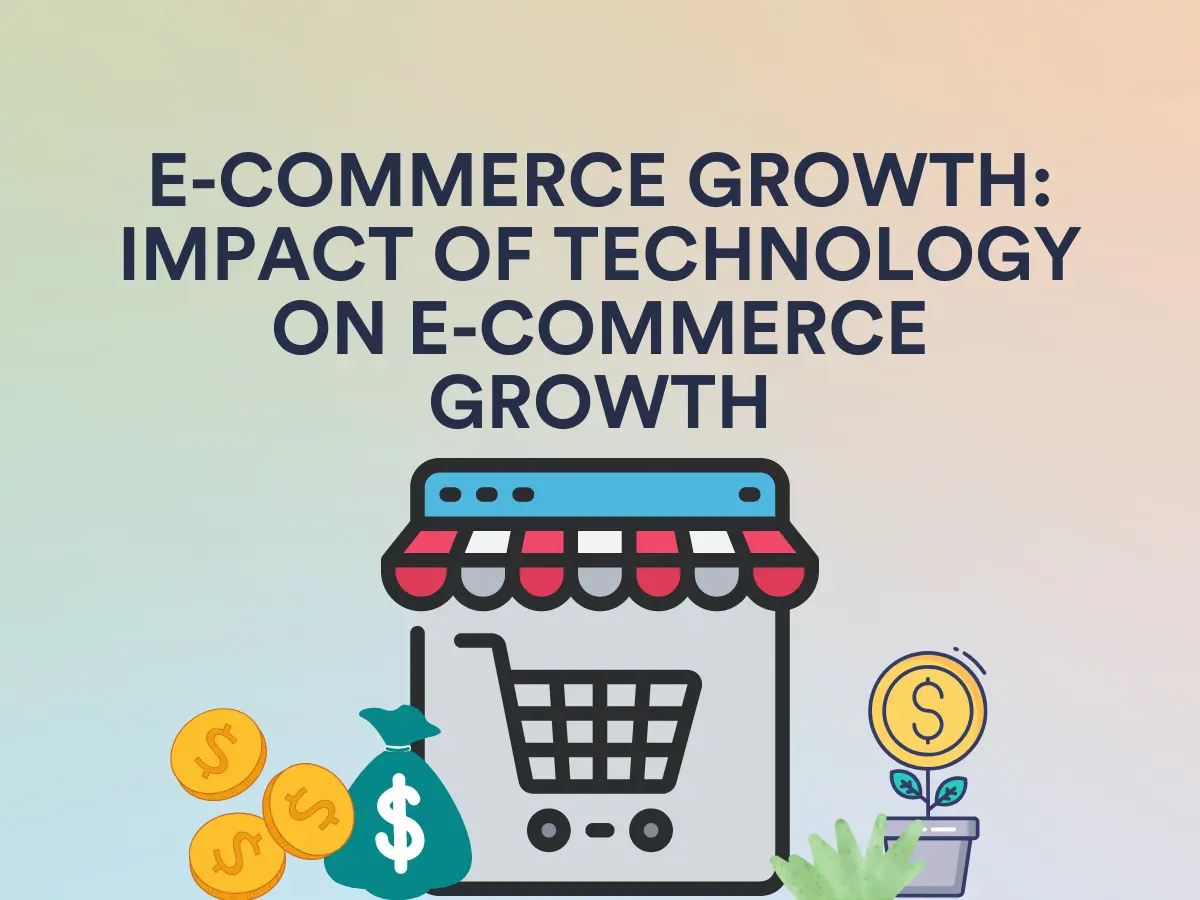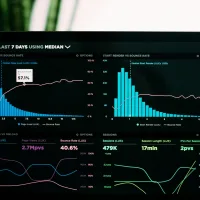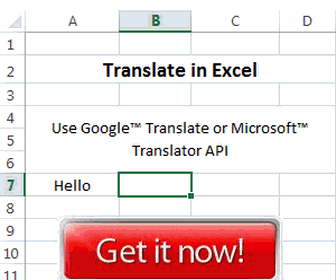If you are looking for tech business ideas to start, then starting a mobile app development business is a great option. You do not necessarily need to be a mobile app developer, (although having this lucrative tech skill will help) before you can launch your own mobile app business.
However, you need a great team, a solid mobile app development business plan, an eCommerce marketing strategy, and the right app ideas. You’ll also need to know how to monetize mobile apps.
When starting a mobile app development business, there are several business models to choose from. You can either create mobile apps, monetize them, or promote them yourself. Or, you can sell your services as a mobile app development agency to other businesses.
Whichever option you choose, learning how to start a mobile app development business is not a waste of time.
In this blog, we’ll look at how to start a mobile app development business and the several mobile app development business models. Let’s get to it!
What is a Mobile App Development Business?
A mobile app development business specializes in creating apps for smartphones and tablets. These apps can range from simple tools and games to complex business solutions.
Typically, a mobile app business offers services like app concept creation, app design, and app development. They also help with app testing, deployment, mobile app marketing, and maintenance.
Mobile app businesses can range from solo developers to full-service agencies, catering to specific niches or industries. If you are already a mobile app developer, it is easier to start a solo business.
However, you cannot do it all by yourself. From needing the skills of a graphics designer to that of a product designer, you need to build a team that can help turn your ideas into successful ventures.
Most mobile app development businesses try to carve out a niche for themselves in specific industries. For instance, you may choose to create eCommerce business apps or apps that can help users invest in gold online.
If you prefer being an agency, you can work with businesses in specific verticals, like SaaS businesses or even fintech businesses. Specializing will help you build authority and improve your expertise in your niche quickly.
Mobile App Development Business Model
Starting a mobile app development business involves not only creating great apps but also establishing a solid business model. The mobile app development business model you choose will determine your app monetization strategies, marketing strategies, and eCommerce sales strategies.
So, what is a mobile app development business model? A mobile app development business model is the roadmap that guides your app from idea to launch and beyond.
Your mobile app business model outlines how you’ll generate revenue, acquire users, and sustain your business over the long term. Choosing the right model is crucial for ensuring the success of your app.
When choosing your mobile app business model, consider what works best for your app. For instance, Netflix uses a subscription business model, where users pay monthly to watch their shows.
Now, imagine that Netflix included in-app ads that pop-ups up at intervals. This will make the app frustrating to use for subscribers and will make Netflix lose a lot of customers.
Here are some popular mobile app business models:
- Freemium: Free app with premium features for a fee. Great for large user bases and converting some to paying customers.
- Paid App: One-time fee for download and use. Ideal for apps with high perceived value and unique features.
- Subscription: Recurring fee for access and features. Suitable for apps offering ongoing value and updates.
- In-App Advertising: Revenue from ads displayed within the app. Effective for reaching a large audience, but requires careful implementation.
- Commission-based: Developing apps for clients on a project basis, earning a fee for your services. Provides predictable income but requires strong marketing and sales efforts.
- Hybrid Models: Combining different models can create a hybrid approach that suits your app’s needs.
How Profitable is Mobile App Development?
The big question – how much can you make with mobile app development? Is an app a profitable business?
Mobile app development can be a lucrative venture, offering substantial profit potential. However, success hinges on numerous factors, and profitability is far from guaranteed.
Let’s look at some statistics:
- The global mobile app market reached a staggering $475.9 billion in 2022 and is projected to reach $755.5 billion by 2027.
- This growth is driven by increasing smartphone penetration, user engagement with apps, and the emergence of new technologies like 5G and AI.
Now, how profitable your mobile app business can be depends on several factors.
They include:
- App Monetization Strategy: Choosing the right strategy is crucial. Popular options include in-app purchases, subscriptions, advertising, freemium models, and eCommerce integration.
- App Market and Competition: The app market is highly saturated, with millions competing for users’ attention. Standing out requires a unique and valuable app, effective marketing, and user acquisition strategies.
- Target Audience and Market Demand: Understanding your target audience and their needs is crucial. Developing an app that solves a specific problem or caters to a niche market can lead to higher profitability if the demand is significant.
- Development and Maintenance Costs: The cost of developing and maintaining a mobile app can vary significantly based on complexity, features, platform compatibility, and ongoing updates.
- Team Expertise: Building a skilled team with expertise in design, development, marketing, and business strategy is essential for success.
25 App Development Business Ideas
If you don’t have an idea for your mobile app business yet, don’t worry – these ideas can help.
Here are some app development business ideas:
- Personal fitness coach app
- Mindfulness and meditation app
- Nutrition tracker app
- Sleep tracker app
- Health data management app
- Interactive language learning app
- Skill development platform
- Educational game app
- Virtual classroom app
- AR/VR educational app
- Time management app
- Habit tracker app
- Finance management app
- Project management app
- Personalization app
- Hyperlocal events app
- Community-based social app
- Interactive AR/VR game app
- Music streaming app
- Creative expression app
- On-demand service marketplace app
- eCommerce platform app
- Business productivity app
- Inventory management app
- Data visualization app
How to Start an App Business
There are several steps to take before your app business idea can become a successful venture.
Here’s a guide on how to start a mobile app development company:
1. Choose Your Mobile App Business Idea
If you scroll through the Google Play store or Apple App Store, you’ll see a lot of apps – some useful, and others, well, not so good. When starting a mobile app business, make sure you validate your ideas.
It’s good to have ideas – yes – but, make sure the app idea is something your customers need. What need will your mobile app fulfill? Will it make the life of your target users easier? Or are you just after the money?
If you are just after the money, then you may compromise on the value of your mobile app. This is one of the reasons mobile app businesses fail.
Here’s a checklist to follow when choosing your mobile app business idea:
- Is there a clear problem or need that your app addresses?
- Does your app offer a unique solution or improve upon existing solutions?
- What is your mobile app’s unique selling point?
- Is the problem or need large enough to support a viable business?
- Are there any existing apps that offer similar solutions?
- Is there a large enough market for your app to succeed?
Write out your answers and if they make sense to you, then you can move on to the next step. If not, you can go back to your drawing board and think up another mobile app business idea.
2. Validate Your App Business Idea
Until you get your first mobile app eCommerce sales, your idea is still just an idea. So, make sure you test your idea and validate it. Creating a prototype of your idea is a great way to do this.
Your first step in validating your idea is to check if people are even looking for it in the first place. This is where simple keyword research comes in. eCommerce marketing tools like Google Trends can help you find what people are looking for.
Another way to validate your idea is to just go ahead and build your MVP (minimum viable product). Since it’s just a prototype, you can use a simple no-code app development tool like Bubble to make your MVP.
Once you have a valid idea, you can move to creating your wireframe. Creating a wireframe for your mobile app can be as simple as jotting down the flow map on a piece of paper. To make things easier, you can use prototyping tools such as JustInMind or Figma.
Remember to be as detailed as possible. Write down how a user will navigate on your app, from the moment they log in to when they sign out. You must jot down the flow of each functionality of your app as well.
Now that you have everything out on pen and paper, it’s time to remove the non-essentials.
Stick to the main benefit of your mobile app idea. Only include the must-haves in the first version, and save the extra features for later updates.
This will help you minimize the cost of building your mobile app.
3. Write Your Mobile App Business Plan
This step is important, especially if you plan to pitch your mobile app idea to investors. A business plan will serve as a roadmap for your business.
Most business owners find it difficult to write a business plan for their ventures. To be honest, it’s not easy creating one.
You can use business plan writing tools to make it easier for you or just simply outsource it to a tech freelancer.
Creating your business plan is like drawing a map for your mobile app journey. It helps you see where you’re going and how to get there. Make sure it is as detailed as possible.
Here’s what you should include in your mobile app business plan:
- Executive Summary
- Business Description
- Market Analysis
- Organization and Management
- Product or Service Description
- Marketing and Sales Strategy
- Funding Requirements
- Financial Projections
- Risk Analysis
- Implementation Timeline
- Monitoring and Evaluation
- Appendix
4. Register Your Business
Now that you have your MVP or prototype and a business plan, you are one step closer to becoming a mobile app business owner. The next thing to do is to register your business with the relevant authorities.
This will make it easier to open a bank account, secure loans, and even build brand credibility. Make sure you also choose the legal structure of your mobile app development business.
Another thing to consider is getting all your business licenses. You may need to also get additional licenses depending on the vertical that you are in. For instance, if you develop a contactless payment app in Nigeria, there are several fintech regulations and policies to keep in mind.
Once your business is duly registered, you can continue to the next step.
5. Secure Funding For Your Business (Optional)
You can secure startup funding for your mobile app business as soon as you’ve validated your mobile app business idea. However, it may be a bit difficult to find investors or banks that will be willing to invest in just an idea.
It’s easier to get the funding you need once you have a business plan, a working MVP, or a product that has gone to market. Some investors and venture capital firms require that your mobile app already have some traction.
You’ll need to know how to write your tech startup pitch and how capital budgeting works. This will put you several steps ahead when reaching out to investors.
There are several ways to secure funds for your mobile app business.
Some of these ways are:
- Bootstrapping
- Angel Investors
- Venture Capital (VC) Firms
- Crowdfunding
- Small Business Loans
- Government Grants and Subsidies
- Pitch Competitions
- Corporate Sponsorships
- Accelerators and Incubators
- Strategic Partnerships
- Customer Pre-sales
- Cryptocurrency and Blockchain Funding
6. Build Your Team
As we’ve previously established, you need a great team to build a successful mobile app development business. You cannot do it all by yourself, so get the best people to work with.
Unless you have a steady flow of income dedicated to your business, it might be a little difficult to put together a big team at first. So, start with the essentials.
If you don’t have the technical skills required for your mobile app business, then you need to get a technical partner. Most new business owners offer their technical partners equity or the co-founder position in return for their technical expertise.
You can also reach out to someone you know, like a friend or family member. However, make sure you sign all the relevant documentation about remunerations.
Another essential team member you’ll need is a product marketing partner. This person will help develop the branding, marketing strategy, and positioning for your mobile app.
A well-versed product marketing partner can significantly impact the success of your app by effectively reaching and engaging your target audience.
Building a robust team is crucial, and as you grow, you can expand your team to include roles such as web developers, designers, project managers, and customer support. It’s essential to find individuals who align with your business goals and bring complementary skills to the table.
As your business progresses, consider hiring based on the following roles:
- Developers: Responsible for coding and programming the app.
- Graphics Designers: Create visually appealing and user-friendly interfaces.
- Project Managers: Oversee the development process, ensuring timely completion.
- Product Marketing Specialist: Develop strategies to promote and position the app in the market.
- Social Media Manager: Manages social media channels to increase app visibility.
- Content Creator: Generates engaging content to attract and retain users.
- Operations Manager: Handles day-to-day business operations.
- Customer Support: Assists users and addresses queries or concerns.
- Sales Representative: Focuses on acquiring new users and partnerships.
- Partnerships Manager: Develops and manages strategic partnerships.
Remember, each team member plays a vital role in the overall success of your mobile app business. Look for individuals who share your passion and vision, and foster a collaborative and innovative work environment.
7. Develop Your Product
Now that you have your team, it’s time to develop your product. This stage is where your vision starts to take shape, and collaboration becomes crucial.
Start with detailed planning sessions. You must sit down with your technical team and product marketing partner to sketch out a roadmap.
It is a good idea to define milestones and set realistic timelines. This detailed plan will guide your mobile app development journey.
Move on to the fun part – prototyping (if you haven’t done this already). Work closely with your designers and developers to create a visual prototype or wireframe of your app. Think of it as a rough sketch that gives you an early look at how your app will function and what it will look like.
The development process is often best tackled in smaller, manageable steps. It is best to adopt an iterative approach, breaking down the project into sprints.
Don’t forget to review progress, tackle challenges, and fine-tune your app’s features and user experience.
8. Test Your Product
Now, let real users take the stage. Conduct user testing with a small group. Their feedback is gold. It helps you understand how users interact with your app, what works well, and what needs improvement.
Quality assurance is the next checkpoint. Rigorous testing is key to identifying and fixing bugs or performance issues. Security should be a priority too – make sure your app is a safe space for user data.
Think big.
Design your app to scale gracefully, ready to accommodate more users and increase demand. You must pay attention to the unique requirements of different devices and platforms, ensuring a smooth experience for everyone.
Make sure you keep a well-documented record of your journey. Detailed documentation will be your trusted companion for future updates, troubleshooting, and guiding new team members.
9. Implement Your Mobile App Marketing Plan
Once you’ve tested your mobile app and removed all the initial glitches and bugs, it’s time to implement your marketing plan. There are several marketing strategies you can implement, however, you must implement strategies that will effectively reach and resonate with your target audience.
You can begin by creating a buzz around your mobile app, building anticipation for its launch. Make sure you build a strong online presence for your mobile app.
This includes a user-friendly eCommerce website and active social media profiles. You can take advantage of social commerce platforms like Instagram, Facebook, X, and LinkedIn to engage with potential users and create a community around your app.
It is important that your marketing strategies – eCommerce content marketing, eCommerce email marketing, eCommerce social media marketing – communicate the unique selling point of your app. This will help you attract your target customers faster.
Another marketing strategy you want to invest time in is ASO-app store optimization. This effort will help in optimizing your app store presence.
Craft a compelling app description, use eye-catching visuals, and choose relevant keywords for app store optimization (ASO). This will improve your app’s visibility and discoverability, increasing the likelihood of downloads.
Remember, the success of your mobile app is not just about creating a great product but also effectively communicating its value to your audience. Stay agile, be open to feedback, and adapt your marketing strategies based on what resonates best with your users.
Launch Your Product
If you got to this step, congratulations!
Launching your mobile app is a momentous achievement, and it’s a testament to the dedication and hard work of you and your team. Many aspiring mobile app business owners face challenges that prevent them from reaching this stage, so take a moment to celebrate your success.
Once you hit that launch button, there’s no turning back. The journey now involves a continuous loop between marketing, sales, support, and keeping your app updated.
Remember, the launch is not the finish line but a starting point for the growth and evolution of your mobile app business. Stay agile, stay connected with your users, and be ready to adapt to the ever-changing landscape of the app market.



















